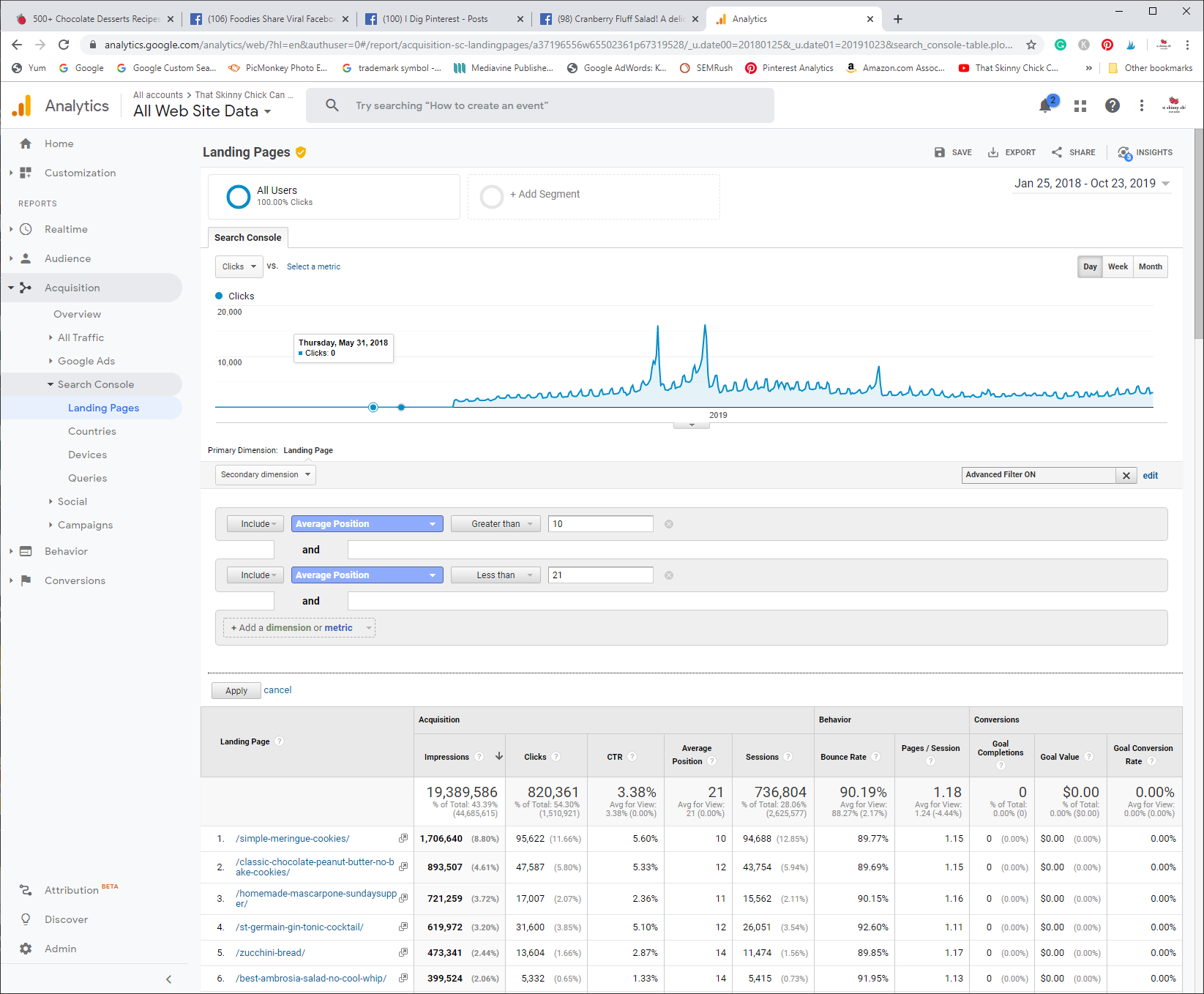Write Blog Posts that Rank on Google’s 1st Page
RankIQ is an AI-powered SEO tool built just for bloggers. It tells you what to put inside your post and title, so you can write perfectly optimized content in half the time. RankIQ contains a hand-picked library with the lowest competition, high traffic keywords for every niche.
Blog Title: That Skinny Chick Can Bake
Social Media:
IG: https://www.instagram.com/thatskinnychickcanbake/
FB: https://www.facebook.com/ThatSkinnyChickCanBake/
About: My love of baking began in my childhood kitchen. My mom encouraged our creativity with art, music and cooking. I married a chocoholic and together we had 3 children who also love sweets. I started my blog in 2010 to chronicle my baking journey.
Notes from Episode #053: SEO
Fun fact: Liz loves to meet up with friends. She recently met up with 9 high school friends and went on a hike together.
Know your content! Know which posts are doing well and which posts are on the cusp of doing well. In order to do that, you should be going through Google analytics to help you figure out where to start.
Once you target the posts that are close to appearing on page 1, ranking #11-20 (page 2 of Google) it’s time to focus on them and spend some time improving those posts.
Here’s how to find your low-hanging fruit:
1. Open Google Analytics and navigate to Acquisition > Search Console > Landing Pages
2. Set the date range to last 3 months (this metric must be based on a longer period of time than just this month or this week to be of maximum value).
3. Set the list to show 100 rows (or however many you choose to work on). Next, you need to set a filter to see only the posts that we are considering low-hanging fruit, with an average position of 11-20.
4. Click the Advanced link next to the search field (zoom in for more detail).
5. In the first field, select the following from the dropdowns: ‘Include’, ‘Average Position’, ‘Greater Than’, and type in 10. Then click the ‘Add a dimension or metric’ button.
6. Click ‘Add a dimension or metric’. This will create a second field.
7. In the second field, select the following from the dropdowns: ‘Average Position’, “Less than’, and type in 21.8. Click Apply.


Here’s a good checklist to reference:
Look at one of your posts that you want to improve and google that generic recipe and see what others are sharing on the topic. Don’t copy but you can generate some ideas of what to educate your audience on about this type of food they are making.
Give the post some SEO magic.
SEMrush or another paid site.
There are free options as well. You can use Google to do some keyword search and see what kind of words are out there. It’s almost too obvious of a source! It’s a great way to inspire your writing content.
Keyword search – find keywords that aren’t as competitive to make your recipe shine brighter from the rest of the pack and what sets your recipe apart from other recipes that might make someone want to check your content out.
Avoid keyword stuffing!
Improve photographs.
Remove content that isn’t relevant
Find something to explain or teach on. Share how to do a process, this will help improve user experience to your audience. Explain a cooking or baking tip in more detail that is done within the recipe being used so they understand how to do it and then can apply the technique.
Share some links from your site that are similar to this recipe that your audience might want to check out and include this internal links in a list or as a suggestion within the paragraphs. You could add value to your post with interlinking a sauce or a process to the food with this homemade tip, then link it in.
FAQ’s – think ahead of some questions a reader might ask about the recipe and be sure you have already provided that detail within the body of the post.
Be sure to have a pinnable image available.
You can redo old content but some you just have to delete!
Affiliate Amazon links can be added to posts
Site speed is important to improve
Ads support our blogs with our income but it also slows down our site speed so you have to find a balance
Broken links are important to keep an eye on.
Don’t compare yourself to anyone else. Instead, compare yourself to who you were a year ago. Keep a positive attitude!
Helpful references from the episode:
Ubersuggest
Keywords Everywhere
Google
SEMrush




